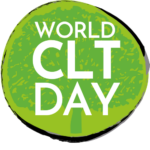Favela Community Land Trust
The Favela Community Land Trust (Favela-CLT) project was born in August 2018, shortly after the city of Rio de Janeiro experienced the largest wave of evictions in its history. At this time, some 80,000 people were removed from their homes, justified by the purported need to prepare the city for the mega-events that were hosted there, especially the 2016 Olympics. The enormous scale of this eviction policy, combined with a gentrification process that affected a number of favelas, made clear the inability of existing land instruments to guarantee the permanence of residents in their spaces. Faced with this scenario, we sought new ways to strengthen the security of tenure amongst Rio’s communities, making connections to an innovative model that emerged in the United States in the 1960s, and which today is being implemented across the world: the Community Land Trust (CLT).
The potential of CLTs for favelas and other urban occupations has been demonstrated by the Caño Martín Peña communities in Puerto Rico, in which a group of favelas decided to adopt the model as a way to regularize their territory, calling it Fideicomiso de la Tierra. Once the CLT was established, residents began to exercise collective management of the land, with their tenure guaranteed, protecting them against state removal or speculative gentrification, an imminent risk because of the centrality of the area they occupy and public investments there.
The experience of Puerto Rico has shown that the CLT model can fit very well into the reality of informal settlements undergoing land regularization processes, thus deviating from the classical application of the model in the Global North. Inspired by the experience, in August 2018, the NGO Catalytic Communities invited several members from the Fideicomiso de la Tierra Caño Martín Peña to Rio de Janeiro to offer a series of workshops to local actors. The main purpose of these workshops was to learn from the Puerto Riquean experience, to better understand the model and discuss how it could be useful to promote affordable housing in Brazil.
After 5 days of workshops, it was decided that a permanent Working Group would be formed, with regular meetings, to study the CLT in more depth, spreading knowledge about it and thinking about how it could be implemented in Brazil. The composition of the group was diverse in its origin, including community leaders, representatives of public agencies, universities, architects and urban planners and students. Right at the beginning, two main work fronts were set up: mobilization (aimed at organizing activities in the interested communities) and legislation (aimed at finding legal solutions for application of the CLT, and building proposals to regulate the model and facilitate its use).
Right at the beginning, it was necessary to adopt a new nomenclature for the model. The name Community Land Trust could not be literally replicated in Portuguese, not only because of its difficult understanding but also because of the differences between the legal systems of Brazil and the USA. Thus, the name Termo Territorial Coletivo was formulated, as it manages to capture the essence of the model: its consensual character and free manifestation of the will – an agreement, a term -, the object under which it intends to operate – the territory -, and, finally, its community aspect and form of organization – fundamentally collective. It is not a mere translation, but an adaptation of the model to the Brazilian reality, maintaining its fundamental characteristics, but introducing new elements.
Thus, the Favela-CLT Project was born, whose basic structure has remained until today. The diversity of actors participating in the Working Group is one of the greatests aspects of the project, allowing the creation of a fertile environment for exchange and collaboration. Right from the start, two communities in Rio de Janeiro presented themselves as possible pilot projects, in which a long process of community organizing began to be developed, with broad participation of the residents.
Currently, the Working Group has more than 200 members. Since 2018, we have achieved many victories.The public interest in the Favela-CLT grew substantially, crossing the borders of Rio de Janeiro, and today we maintain contact with actors in different states of the country who wish to work with the model. In 2021, we held the first Public Hearingon the subject, at the City Council of Rio de Janeiro, and we also saw the approval of the first law that regulates the model in Brazil.
The Favela-CLT Working Group is open and everyone who wants to contribute can participate!

